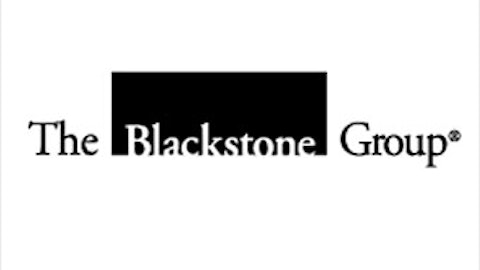“…single-family homes are cheap now, too. If I had a way of buying a couple hundred thousand single-family homes, and had a way of managing them — the management is an enormous problem because they are one by one — they are not like apartment houses. I would load up on them …” — Warren Buffett, from a Feb. 27, 2012 interview on CNBC
During the past year much has been written about single-family homes being viewed as a new asset class for institutional investors. Warren Buffett’s often quoted February 2012 interview on CNBC appears to have been taken to heart by Wall Street. Now, for the first time, recently formed regional and national entities are competing to be your new neighbor. A few of them are trying to compete for your investment dollars as well.
Is there a “first mover” advantage?
REIT investors have traditionally been in search of a dependable risk adjusted yield. As an asset class, REITs have recently fallen out of favor with Wall Street investors. REIT stock prices have been trending lower as long-term interest rates have risen in anticipation of the inevitable winding down of the Federal Reserve QE program. It should then come as no surprise that the anticipated June 2013 IPO of single-family REIT Colony American Homes was cancelled due to market conditions. However, there could be another reason behind this IPO delay. According to an SEC filing in May 2013, just more than 50% of the 9,931 homes purchased by Colony Capital LLC for an aggregate dollar amount of $1.4 billion are vacant.
In a recent Bloomberg News article, Aaron Edelheit, chief executive officer of The American Home, an Atlanta-based single-family rental operator with 2,500 homes was interviewed. “If you’re building a vehicle that’s going to be publicly traded, you’re going to have to show cash flow,” Edelheit said. “Wall Street is going to care about cash flow.”
The first single-family rental REIT to go public was Silver Bay Realty Trust Corp (NYSE:SBY) raising $100 million in December 2012. Altisource Residential Corp (NYSE:RESI), a $100 million spin-off from Altisource Residential Corp (NYSE:RESI) Portfolio Solutions also began trading as a REIT at the end of Dec 2012. (RESI is initially focused on purchasing portfolios of poorly performing single-family mortgages, not the homes). American Residential Properties Inc (NYSE:ARPI) raised $287 million with a timely IPO in May 2013.
All three of these single-family REITs reported losses for the quarter ending March 31.
This is not a surprise if you look at the SEC filings which reveal that a significant percentage of homes these companies own, or plan to acquire, are vacant. Industry giant Invitation Homes, private equity firm The Blackstone Group L.P. (NYSE:BX) single-family rental homes division, budgets 10% of its property acquisition cost for renovation. It is uncertain how long it will take to lease this large number of homes. As publicly traded REITs compete to grow, it will be challenging to generate funds from operations, or FFO, to pay an attractive dividend to shareholders.
Can investors expect hefty increases in rental rates?
In a recent Forbes article, Trulia chief economist Jed Kolko points out that, “rents for single-family homes in the markets where investors have been buying and renting out homes — including Las Vegas, Phoenix, Atlanta, Los Angeles, and Orange County have fallen or flatten year-over-year.”
There are elephants in the room:
It was reported on June 4, 2013 that American Homes 4 Rent, AMH, is seeking $1.25 billion in an IPO led by Public Storage founder B. Wayne Hughes to buy and renovate homes. As of April 30, 2013 American Homes 4 Rent owned 14,210 single-family homes valued at $2.5 billion. It is interesting to note that the contributed over $400 million to Malibu, CA based AMH. “Nobody’s ever done this on a scale before,” Michael Burns, CEO of the Alaska Permanent Fund, which had $41.5 billion under management at the end of the first quarter, said in a telephone interview from Juneau, Alaska. “These people’s background is in public storage, which is about as close as we could find.” The emphasis is mine, as I did not find this logic to be comforting.
The Blackstone Group L.P. (NYSE:BX)’s Invitation Homes is the largest institutional owner of single-family homes to rent. They own a staggering 29,000 homes clustered in 13 of the 300 housing markets throughout the U.S. Even more daunting is the fact that 25,000 of these homes have been purchased in the last 12 months according to a June 9, 2013 Blackstone Blog post. This post appeared on the The Blackstone Group L.P. (NYSE:BX) website in response to the Sunday New York Times editorial Meet the New Landlord. Blackstone makes a compelling argument that given the sheer size of the U.S. housing market, they own a very small percentage of the homes.
However, in the cities, towns, and neighborhoods where Invitation Homes has placed a pin in the map, it would be silly to believe they do not impact the local market.
There appears to be a “fast mover” advantage:
Jonathan Gray, The Blackstone Group L.P. (NYSE:BX)’s global head of real estate, said recently in a June 10thinterview, “that it’s getting harder to acquire properties for a profit as competition intensifies.” Blackstone has already deployed $5 billion dollars of capital to invest in 29,000 homes — with 24,000 of these homes having been purchased in 2012. This indicates the rate of growth for Invitation Homes has already slowed dramatically halfway through 2013. Gray said, “For our type of capital, my guess is we are in the later stages of this.”
Back in Nov 2012, Jonathan Gray was interviewed by Jason Kelly in a Bloomberg News video. I encourage any investor thinking about buying single-family REIT shares to listen to Mr. Gray discussing The Blackstone Group L.P. (NYSE:BX)’s strategy. They are building Invitation Homes into a branded national platform, fueled by their unparalleled access to billions of dollars of private equity capital. This buys Invitation Homes the luxury of time to stabilize the income stream from their rental home portfolio. The Blackstone Group L.P. (NYSE:BX) can then spin off all or part of Invitation Homes as an exit strategy for their private equity partners. Buyers would be more likely to pay a premium over book value for a transparent company that has predictable funds from operations.
A home may be a castle, but where is the moat?
Single-family REITs that are raising and deploying capital are also competing with savvy local investors and traditional homebuyers. Home ownership is the ultimate mom and pop business. These new single-family REITS are competing with literally millions of David’s, a few Goliaths and one Leviathan. Most of the low hanging fruit appears to have already been picked. The idea of buying used homes below replacement cost in the hopes of repairing them and renting them out for a profit sounds appealing at first glance. The devil is in the details. Invitation Homes may have begun to build a moat in 2012 by nimbly creating a business large enough to be scalable. If so, this would allow for future growth by “bolting on” additional portfolios accretive to earnings.
What would Mr. Buffett do?
I suggest investors pay close attention to the SEC filings for the quarter ending June 30th for Silver Bay Realty Trust Corp (NYSE:SBY), American Residential Properties Inc (NYSE:ARPI), and Altisource Residential Corp (NYSE:RESI) — specifically how each company plans on balancing growth versus earnings moving forward. Time is of the essence. Will one of these early single-family REITs stand out from the pack? I would wait until then to pull the trigger. I believe Berkshire Hathaway could become interested in purchasing part or all of International Homes — but only after it proves to be a scalable and profitable business. Why gamble when you can invest?
The article Single-Family REIT IPOs: Too Early for Wall Street? originally appeared on Fool.com is written by Bill Stoller.
Bill Stoller has no position in any stocks mentioned. The Motley Fool has no position in any of the stocks mentioned. Bill is a member of The Motley Fool Blog Network — entries represent the personal opinion of the blogger and are not formally edited.
Copyright © 1995 – 2013 The Motley Fool, LLC. All rights reserved. The Motley Fool has a disclosure policy.



